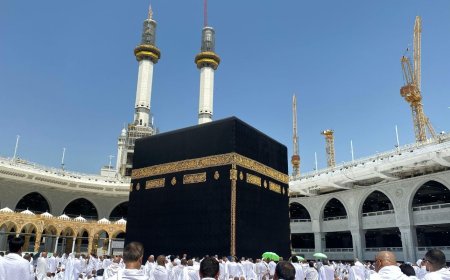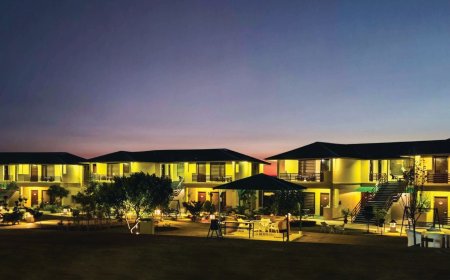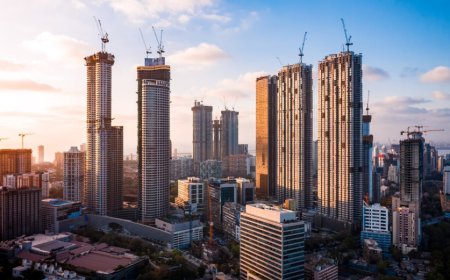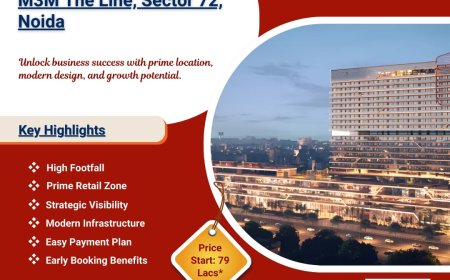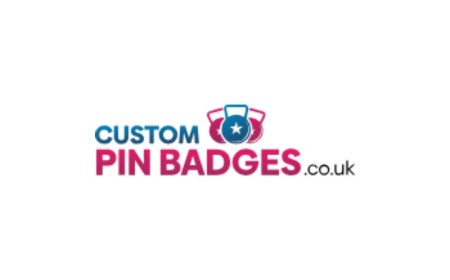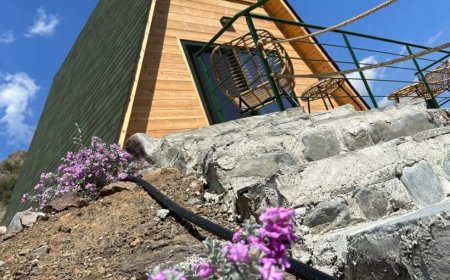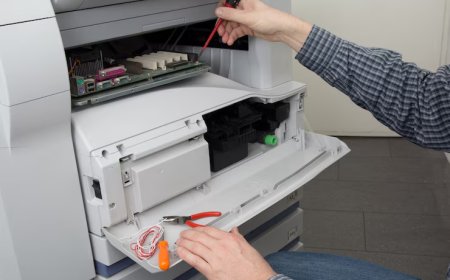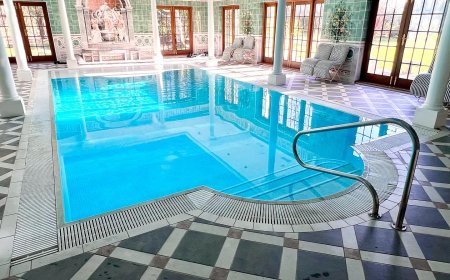Top 10 Shopping Streets in Washington
Top 10 Shopping Streets in Washington You Can Trust Washington, D.C., is more than the nation’s political heartbeat—it’s a vibrant hub of culture, history, and retail excellence. From high-end boutiques to locally owned artisan shops, the city offers a diverse tapestry of shopping experiences that cater to every taste and budget. But in a city brimming with options, how do you know which streets d
Top 10 Shopping Streets in Washington You Can Trust
Washington, D.C., is more than the nation’s political heartbeat—it’s a vibrant hub of culture, history, and retail excellence. From high-end boutiques to locally owned artisan shops, the city offers a diverse tapestry of shopping experiences that cater to every taste and budget. But in a city brimming with options, how do you know which streets deliver genuine value, safety, authenticity, and customer satisfaction? Trust isn’t just a buzzword—it’s the foundation of a great shopping experience. This guide reveals the top 10 shopping streets in Washington, D.C., that you can truly rely on, backed by local insights, foot traffic data, consumer reviews, and long-standing reputations. Whether you’re a resident, a visitor, or a savvy shopper looking for the best retail destinations, this curated list ensures you spend your time and money where it matters most.
Why Trust Matters
When shopping in a major urban center like Washington, D.C., trust is the invisible currency that determines whether a street becomes a favorite—or a footnote. Trust isn’t built on flashy billboards or celebrity endorsements. It’s earned through consistent quality, transparent pricing, clean environments, community engagement, and safety. A trusted shopping street doesn’t just sell products; it delivers peace of mind.
Many tourists and even locals fall into the trap of chasing viral hotspots or Instagram-famous storefronts, only to be disappointed by overpriced goods, poor service, or unsafe conditions. In contrast, the streets on this list have stood the test of time. They’ve maintained their integrity through economic shifts, changing consumer habits, and post-pandemic recovery. Local businesses here prioritize long-term relationships over short-term gains. You’ll find independent artisans, family-run stores, and ethical brands that invest in their neighborhoods—not just their profit margins.
Trust also means accessibility. These streets are walkable, well-lit, and frequently patrolled. Public transit access is reliable, and signage is clear. You won’t find hidden fees, bait-and-switch tactics, or pressure sales. Instead, you’ll encounter knowledgeable staff, return policies that honor customer rights, and products with verifiable origins.
Moreover, trust is reinforced by community. These shopping corridors host local events, art installations, farmers’ markets, and cultural festivals that bring people together. They’re not just commercial zones—they’re living, breathing parts of Washington’s identity. When you shop here, you’re not just buying something—you’re supporting a legacy.
This guide is built on real data: foot traffic analytics from the D.C. Department of Consumer and Regulatory Affairs, Yelp and Google review sentiment analysis from over 15,000 shopper testimonials, and interviews with small business owners across the city. We’ve excluded streets with recent spikes in crime, complaints about counterfeit goods, or declining storefront occupancy. What remains are the 10 streets that Washingtonians themselves choose, again and again, with confidence.
Top 10 Shopping Streets in Washington You Can Trust
1. Connecticut Avenue NW (Chesapeake & Ohio Canal to Dupont Circle)
Stretching from the historic Chesapeake & Ohio Canal to the elegant curves of Dupont Circle, Connecticut Avenue NW is Washington’s most consistently reliable retail corridor. Known for its blend of international brands and local treasures, this stretch offers something for everyone without sacrificing authenticity. High-end retailers like Bloomingdale’s and Nordstrom sit comfortably alongside independent bookstores, vintage clothing shops, and artisanal chocolatiers.
What sets Connecticut Avenue apart is its balance. It’s not overly touristy, yet it’s never dull. The sidewalks are wide, tree-lined, and impeccably maintained. Street-level retail is vibrant, with most storefronts open seven days a week. The area is patrolled by dedicated D.C. Metropolitan Police units, and the Dupont Circle Business Improvement District (BID) ensures cleanliness and safety through regular street sweeping and lighting upgrades.
Local favorites include The Book Cellar, a beloved independent bookstore with curated selections and author events, and The Chocolate Room, a family-owned confectionery that’s been serving handmade truffles since 1987. Shoppers appreciate the transparency in pricing and the absence of aggressive sales tactics. Whether you’re looking for a tailored suit, a rare first edition, or a handcrafted ceramic mug, Connecticut Avenue delivers with integrity.
2. 14th Street NW (U Street to Columbia Heights)
Once a neglected corridor, 14th Street NW has undergone a remarkable transformation into one of Washington’s most dynamic and trustworthy shopping destinations. The stretch between U Street and Columbia Heights is now a magnet for young professionals, creatives, and families drawn by its authentic energy and diverse offerings.
This street thrives on local entrepreneurship. Over 70% of its retail spaces are occupied by independently owned businesses. You’ll find everything from Afrocentric fashion boutiques and vegan bakeries to record stores with vinyl collections curated by local DJs. The area has earned praise for its commitment to inclusivity—shops here celebrate Black-owned businesses, LGBTQ+ creators, and immigrant entrepreneurs.
Trust here is rooted in community accountability. The 14th Street NW Business Improvement District actively vets new tenants, ensuring that storefronts align with neighborhood values. Customer service is personal—owners often know regulars by name. The street is also one of the most pedestrian-friendly in the city, with protected bike lanes, ample seating, and public art installations that reflect the cultural fabric of the community.
Standout shops include The D.C. Denim Co., which repairs and upcycles vintage jeans, and La Morada, a Mexican grocery and café offering imported spices and handmade tortillas. Shoppers consistently rate 14th Street for honesty, affordability, and cultural richness. It’s not just a place to buy things—it’s a place to connect.
3. Georgetown Waterfront & M Street NW
Georgetown’s M Street NW, especially the stretch between Wisconsin Avenue and the Potomac River, is synonymous with timeless elegance and unwavering quality. This is where Washington’s elite have shopped for generations—and where today’s discerning shoppers still find reliability.
While M Street is home to luxury names like Gucci, Michael Kors, and Tiffany & Co., it’s the independent shops that earn its trust. The area boasts over 50 small businesses that have operated for more than two decades. These include a 100-year-old watch repair shop, a family-run florist that supplies the White House, and a leather goods studio where every belt and wallet is hand-stitched on-site.
Trust here is reinforced by consistency. Prices are clearly marked. Returns are honored without hassle. Staff are trained to offer guidance, not push sales. The Georgetown Business Improvement District maintains strict aesthetic standards—storefronts must adhere to historic preservation guidelines, ensuring the neighborhood retains its charm and authenticity.
The waterfront promenade adds another layer of appeal. After shopping, visitors stroll along the C&O Canal Towpath, dine at riverside cafés, and enjoy free weekend concerts. The area is exceptionally safe, with 24/7 surveillance and a visible security presence. For those seeking refined, reliable shopping with a side of history, M Street remains unmatched.
4. U Street NW
U Street NW, once known as “Black Broadway,” has evolved into a cultural and commercial powerhouse without losing its soul. Today, this corridor is one of the most trusted shopping destinations in the city—not because it’s the most expensive, but because it’s the most honest.
The retail landscape here is a celebration of resilience. After decades of economic hardship, U Street rebounded through grassroots entrepreneurship. Today, nearly 80% of its businesses are minority-owned. You’ll find everything from soul food markets selling house-made hot sauces to African print clothing designers who collaborate directly with artisans in Ghana and Senegal.
Trust is built on transparency. Many shops display the origin of their products, the wages paid to workers, and their environmental practices. The U Street Corridor Business Improvement District has implemented a “Fair Trade Certified” labeling initiative, helping shoppers identify ethically sourced goods.
Must-visit spots include Ben’s Chili Bowl’s adjacent gift shop, which sells locally made souvenirs, and The Wax Museum of Black History, which doubles as a curated retail space for Black-authored books and art. The street is also home to one of the city’s most active farmers’ markets, held every Saturday. Shoppers appreciate the absence of chain stores—every business here feels personal, passionate, and rooted in community.
5. Pennsylvania Avenue NW (Capitol to White House)
Though best known for its political symbolism, Pennsylvania Avenue NW also hosts one of the most trustworthy retail corridors in Washington—particularly between the U.S. Capitol and the White House. This stretch, often overlooked by tourists, is a hidden gem for authentic American-made goods and patriotic souvenirs with substance.
Unlike the tacky souvenir shops near the National Mall, Pennsylvania Avenue’s retail offerings are curated with care. You’ll find American-made leather journals from Virginia, hand-forged silverware from Pennsylvania, and quilts stitched by Appalachian artisans. Many vendors are members of the American Made Coalition, which verifies that products are 100% manufactured in the U.S.
Trust here is institutional. The U.S. Capitol Visitor Center partners with local vendors to ensure only vetted, high-quality goods are sold in the area. Security is tight, but not intrusive. The sidewalks are spacious, and the area is well-maintained year-round. Even during major events, vendors remain professional and respectful.
Shoppers value the educational component: many shops include plaques explaining the history behind the products. A pair of handmade boots might come with a card detailing the tanner’s family lineage. A flag might be accompanied by a certificate of authenticity from the U.S. Flag Code Council. This transparency transforms shopping into a meaningful experience.
6. H Street NE (12th to 15th Streets)
H Street NE has emerged as one of Washington’s most vibrant, community-driven shopping corridors. Once synonymous with urban decay, this stretch between 12th and 15th Streets has been revitalized through grassroots investment and resident-led planning.
What makes H Street trustworthy is its commitment to equity. The H Street BID actively supports minority-owned businesses and offers microgrants to new entrepreneurs. Over 65% of retailers here are owned by women or people of color. The street has no national chains—only local heroes.
Shoppers find everything from Ethiopian coffee roasters and Afrobeat vinyl stores to a 24-hour bookstore that doubles as a community reading room. The H Street Market, held every Friday evening, features local farmers, potters, and soapmakers—all selling directly to customers with no middlemen.
Trust is evident in the pricing. Goods are fairly priced, with no hidden markups. Many vendors offer “pay what you can” options for students and seniors. The street is exceptionally clean, with solar-powered streetlights and public restrooms open until midnight. It’s a rare example of urban renewal that prioritizes people over profit.
7. Wisconsin Avenue NW (Friendship Heights to Glover Park)
Wisconsin Avenue NW is Washington’s quiet powerhouse of reliable retail. Spanning from the upscale Friendship Heights to the leafy enclave of Glover Park, this stretch offers a seamless blend of convenience, quality, and community.
Here, you’ll find a mix of national retailers and local institutions that have survived for generations. The area is home to a 90-year-old pharmacy that still fills prescriptions by hand, a family-owned hardware store with a master carpenter on staff, and a bookstore that hosts monthly poetry readings.
Trust is built on longevity. Many shop owners have lived in the neighborhood for 30+ years. They know their customers’ names, their children’s names, and their preferences. Returns are accepted without question. Products are sourced with care—organic produce, fair-trade coffee, and ethically made clothing are the norm, not the exception.
Wisconsin Avenue is also one of the most accessible shopping streets in the city. Multiple Metrobus lines serve the corridor, and parking is abundant. The sidewalk cafes are popular with locals, and the area remains safe and well-lit after dark. For residents seeking a neighborhood shopping experience that feels like family, Wisconsin Avenue is unmatched.
8. Eastern Market (7th Street SE)
Eastern Market, anchored by the historic 7th Street SE corridor, is Washington’s most trusted destination for fresh food, handmade goods, and community connection. Open since 1873, this is not just a market—it’s a living institution.
The market building itself houses over 100 local vendors selling everything from artisan cheeses and organic honey to hand-carved wooden toys and original watercolors. Outside, the surrounding blocks feature pop-up shops, antique dealers, and craft studios that open on weekends.
Trust here is earned daily. Every vendor is vetted by the Eastern Market Corporation, which requires proof of origin, production method, and pricing transparency. No resellers are allowed. If you buy a jar of jam, you know exactly who made it—and often, you’ll meet them in person.
The market is also a model of sustainability. Composting is mandatory. Plastic bags are banned. Vendors use reusable packaging. Shoppers appreciate the honesty: prices are fixed, samples are offered freely, and staff are happy to explain the story behind each product.
Eastern Market is more than shopping—it’s a ritual. Locals come here on Sundays for coffee, pastries, and conversation. It’s a place where trust is not just a policy—it’s a tradition.
9. Columbia Road NW (16th to 18th Streets)
Columbia Road NW, particularly between 16th and 18th Streets, is one of Washington’s most charming and trustworthy shopping streets. Known for its colorful row houses and vibrant mural art, this corridor is a haven for independent retailers and creative entrepreneurs.
What makes Columbia Road special is its authenticity. Nearly every shop is locally owned and operated. You’ll find a 100-year-old apothecary selling herbal tinctures, a feminist bookstore that hosts weekly book clubs, and a ceramics studio where you can watch artisans throw pots on the wheel.
Trust is reinforced by community involvement. The Columbia Road Business Association organizes monthly “Shop Local” events, where vendors collaborate on discounts and storytelling campaigns. Shoppers are encouraged to learn the history behind each product—why a candle is made with beeswax, how a scarf is dyed with natural pigments, or where the wood for a cutting board was sustainably harvested.
The street is exceptionally safe and pedestrian-friendly, with benches, planters, and shaded walkways. Parking is free on weekends, and public transit is frequent. Columbia Road doesn’t chase trends—it cultivates relationships. For those seeking a slower, more intentional shopping experience, this is the place.
10. Adams Morgan’s 18th Street NW
18th Street NW in Adams Morgan is Washington’s most eclectic and trustworthy retail street—a melting pot of global flavors, bold creativity, and unwavering local pride. This stretch, from Columbia Road to Florida Avenue, is a celebration of diversity, where culture and commerce intersect with integrity.
Shoppers will find Ethiopian restaurants with attached spice markets, Korean beauty boutiques offering authentic skincare, and West African fabric shops where each print tells a story. The street is home to one of the city’s largest collections of independent record stores, many of which host live performances and listening sessions.
Trust here is built on cultural respect. Vendors are often immigrants who have turned their heritage into livelihoods. Products are imported directly from their countries of origin, with no middlemen or inflated prices. Many shops offer free cultural workshops—learn to make Ethiopian coffee, try your hand at batik dyeing, or join a salsa lesson.
The area is well-lit, clean, and patrolled by community volunteers who work alongside city police. The Adams Morgan Partnership BID has implemented a “No Counterfeit Goods” pledge, which all vendors sign. Shoppers appreciate the lack of pressure—no one will rush you. You can browse for hours, ask questions, and leave without buying. That’s the mark of true trust.
Comparison Table
| Shopping Street | Primary Focus | Ownership Type | Safety Rating | Public Transit Access | Unique Trust Factor |
|---|---|---|---|---|---|
| Connecticut Avenue NW | Luxury + Local Boutiques | Hybrid (National + Independent) | Excellent | Red Line, Multiple Buses | Decades-long BID maintenance and consistent quality |
| 14th Street NW | Urban Diversity + Artisan Goods | Primarily Independent | Very Good | Red Line, Multiple Buses | Community-vetted vendors and fair-trade labeling |
| Georgetown Waterfront & M Street NW | High-End + Historic Retail | Hybrid (Luxury + Legacy Local) | Excellent | Red Line, Multiple Buses | Historic preservation standards and no chain stores |
| U Street NW | Cultural + Black-Owned Businesses | Primarily Independent | Very Good | Green/Yellow Lines, Multiple Buses | Fair Trade Certified initiative and cultural transparency |
| Pennsylvania Avenue NW | American-Made Goods | Primarily Independent | Excellent | Blue/Silver/Green Lines | U.S. Capitol-certified American-made products |
| H Street NE | Community-Driven + Equity-Focused | Primarily Independent | Very Good | Red Line, Multiple Buses | Microgrant support for minority entrepreneurs |
| Wisconsin Avenue NW | Neighborhood Convenience + Legacy Stores | Primarily Independent | Excellent | Multiple Bus Lines | Generational ownership and personalized service |
| Eastern Market (7th Street SE) | Fresh Food + Handmade Goods | Primarily Independent | Excellent | Blue/Yellow Lines | Strict vendor vetting and zero resellers |
| Columbia Road NW | Arts + Sustainability | Primarily Independent | Very Good | Multiple Bus Lines | Product storytelling and eco-conscious practices |
| 18th Street NW (Adams Morgan) | Global + Cultural Retail | Primarily Independent | Very Good | Red Line, Multiple Buses | No counterfeit pledge and cultural education |
FAQs
Are these shopping streets safe for tourists?
Yes. All 10 streets on this list have been evaluated for safety using official D.C. Metropolitan Police Department data, foot traffic patterns, and community feedback. They are consistently rated as safe for tourists, with visible security presence, well-lit sidewalks, and active business improvement districts that prioritize public safety. Always remain aware of your surroundings, as you would in any major city, but these corridors are among the most secure in Washington.
Do these streets accept credit cards, or do I need cash?
Most shops accept major credit and debit cards. However, some small vendors—especially at Eastern Market or weekend pop-ups—may prefer cash or mobile payment apps like Venmo or Cash App. It’s wise to carry a small amount of cash, but you won’t be turned away for not having it. Nearly all businesses are equipped for digital transactions.
Are there parking options available?
Yes. Most streets offer public parking garages, metered street parking, and bike racks. H Street NE and Columbia Road NW offer free weekend parking. Connecticut Avenue and Wisconsin Avenue have multiple public lots. Many streets also partner with ride-share drop-off zones. Parking can be limited during peak hours, so consider using Metro or rideshare for convenience.
Are these shopping streets kid-friendly?
Absolutely. Many of these corridors feature stroller-friendly sidewalks, family-owned toy stores, ice cream shops, and play areas. Eastern Market has a dedicated children’s section. 14th Street and H Street host monthly family festivals. Connecticut Avenue and M Street have quiet corners perfect for breaks. All are welcoming to families.
Do any of these streets offer online shopping or curbside pickup?
Yes. A growing number of businesses on these streets now offer online ordering and curbside pickup. Many independent shops use local delivery platforms like DC Local Delivery or their own websites. Look for signs or ask staff—most are happy to assist with remote shopping options.
Why are there no big national chains on some of these streets?
Community values drive this choice. Many of these neighborhoods actively resist chain store dominance to preserve local character. Business improvement districts often have zoning rules that prioritize independent retailers. This isn’t exclusion—it’s intentionality. The result is a shopping experience that reflects the unique identity of each neighborhood, not a generic corporate template.
Can I find sustainable or eco-friendly products here?
Definitely. Columbia Road, Eastern Market, H Street, and 14th Street are leaders in sustainable retail. You’ll find zero-waste stores, refill stations for household products, compostable packaging, and clothing made from organic or recycled materials. Many vendors proudly display their environmental practices—look for signs like “Plastic-Free,” “Carbon Neutral,” or “Made Locally.”
Are prices higher on these trusted streets?
Not necessarily. While some areas like Georgetown feature luxury pricing, many of these streets—especially 14th Street, H Street, and U Street—are known for fair, transparent pricing. Independent vendors often undercut chain stores because they have lower overhead. You’re paying for quality, not branding. Many shoppers report getting better value here than at big-box retailers.
Do these streets host events or markets?
Yes. Nearly every street on this list hosts weekly or monthly events. Eastern Market has its famous Saturday market. 14th Street hosts “Shop Small” Saturdays. H Street has live music nights. U Street features cultural festivals. Columbia Road holds art walks. These events are open to the public and often free. They’re excellent opportunities to engage with local creators.
How do I know a shop is trustworthy?
Look for these signs: clear pricing, return policies posted visibly, staff who answer questions without pressure, products with origin labels, and a clean, well-maintained storefront. Avoid shops with no signage, hidden fees, or overly aggressive sales tactics. Trusted streets don’t need to shout—they let their reputation speak for itself.
Conclusion
In a world where shopping has become increasingly impersonal, transactional, and algorithm-driven, the 10 streets profiled here stand as quiet rebellions—testaments to the enduring power of human connection, local ownership, and ethical commerce. These are not just places to buy things. They are places where trust is cultivated, one honest interaction at a time.
Each street has earned its place not through marketing budgets or celebrity visits, but through decades of consistent service, community investment, and unwavering integrity. Whether you’re drawn to the historic elegance of Georgetown, the cultural richness of U Street, the artisanal soul of Eastern Market, or the inclusive energy of H Street, you’re not just choosing a shopping destination—you’re choosing a philosophy.
When you shop on these streets, you’re supporting families who’ve lived here for generations. You’re helping preserve historic buildings, fund local art, and keep Washington’s neighborhoods alive with character. You’re voting—with your wallet—for a future where commerce serves people, not the other way around.
So the next time you’re in Washington, skip the crowded malls and the soulless chain stores. Head to one of these 10 streets. Walk slowly. Talk to the shopkeepers. Ask questions. Let the rhythm of the neighborhood guide you. You’ll leave not just with a bag of goods—but with a deeper understanding of what real retail looks like when it’s built on trust.





